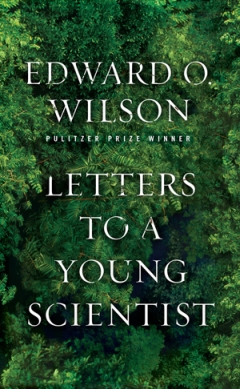- HOME
- INTRO TO THE FORUM
- USE AND MISUSE
- BADLY WRITTEN, BADLY SPOKEN
- GETTING
TO KNOW ENGLISH - PREPARING FOR ENGLISH PROFICIENCY TESTS
- GOING DEEPER INTO ENGLISH
- YOU ASKED ME THIS QUESTION
- ADVOCACIES
- EDUCATION AND TEACHING FORUM
- ADVICE AND DISSENT
- MY MEDIA ENGLISH WATCH
- STUDENTS' SOUNDING BOARD
- LANGUAGE HUMOR AT ITS FINEST
- THE LOUNGE
- NOTABLE WORKS BY OUR VERY OWN
- ESSAYS BY JOSE CARILLO
- Long Noun Forms Make Sentences Exasperatingly Difficult To Grasp
- Good Conversationalists Phrase Their Tag Questions With Finesse
- The Pronoun “None” Can Mean Either “Not One” Or “Not Any”
- A Rather Curious State Of Affairs In The Grammar Of “Do”-Questions
- Why I Consistently Use The Serial Comma
- Misuse Of “Lie” And “Lay” Punctures Many Writers’ Command Of English
- ABOUT JOSE CARILLO
- READINGS ABOUT LANGUAGE
- TIME OUT FROM ENGLISH GRAMMAR
- NEWS AND COMMENTARY
- BOOKSHOP
- ARCHIVES
Click here to recommend us!
TIME OUT FROM ENGLISH GRAMMAR
This section features wide-ranging, thought-provoking articles in English on any subject under the sun. Its objective is to present new, mind-changing ideas as well as to show to serious students of English how the various tools of the language can be felicitously harnessed to report a momentous or life-changing finding or event, to espouse or oppose an idea, or to express a deeply felt view about the world around us.
The outstanding English-language expositions to be featured here will mostly be presented through links to the websites that carry them. To put a particular work in better context, links to critiques, biographical sketches, and various other material about the author and his or her works will usually be also provided.
Advice from a noted scientist to aspiring young scientists
One doesn’t really have to be an aspiring scientist to learn and profit from the wisdom of Pulitzer Prize-winning evolutionary biologist Edward O. Wilson in his Letters to a Young Scientist (Liveright Publishing, 244 pages), for he actually addresses the book to all students—whether young or old—to instill in them his great love and passion for science. In 21 letters rich with illustrations and accompanied by anecdotes about his storied career as a biology researcher and professor, Wilson offers himself as proof that success in the sciences doesn’t depend on intelligence and mathematical skill but rather on a passion for finding a problem and solving it.

In the book inspired by Rainer Maria Rilke’s Letters to a Young Poet, Wilson has distilled his 60 years of teaching and studies of social behavior among insects—particularly ants—and among humans. He explains that through this book, he intends to illustrate an important principle that had seen unfold in the careers of many successful scientists:
“It is quite simple: put passion ahead of training,” Wilson says in the book. “Feel out in any way you can what you most want to do in science, or technology, or some other-science-related profession. Obey that passion as long as it lasts. Feed it with the knowledge the mind needs to grow. Sample other subjects, acquire a general education in science, and be smart enough to switch to a greater love if one appears. But don’t just drift through courses in science hoping that love will come to you. Maybe it will, but don’t take the chance. As in other big choices in your life, there is too much at stake. Decision and hard work based on enduring passion will never fail you.”
Read an excerpt from Edward O. Wilson’s Letters to a Young Scientist in NPR.org now!
Read the highlights of NPR.org’s interview with Edward O. Wilson about the book!
Watch a video of Edward O. Wilson giving advice to young scientists in TED.com now!
ABOUT THE AUTHOR:
Edward O. Wilson, professor emeritus at Harvard University, is the author of the New York Times bestsellers The Social Conquest of Earth and Anthill: A Novel, as well as the Pulitzer Prize–winning books On Human Nature and (with Bert Hölldobler as coauthor) The Ants. For his contributions in science and conservation, he has received more than one hundred awards from around the world.






